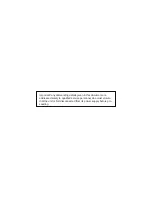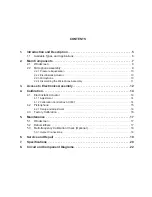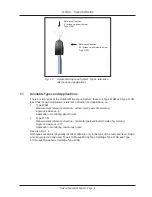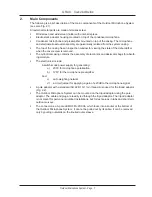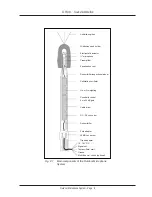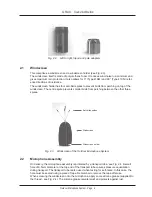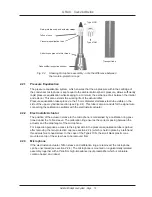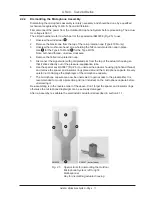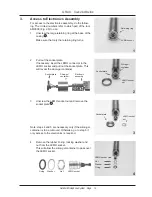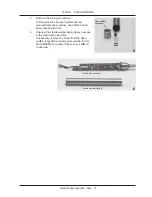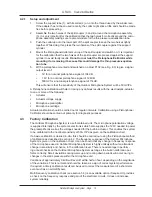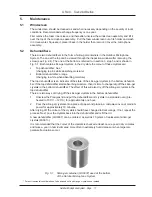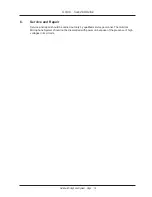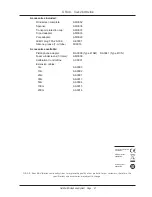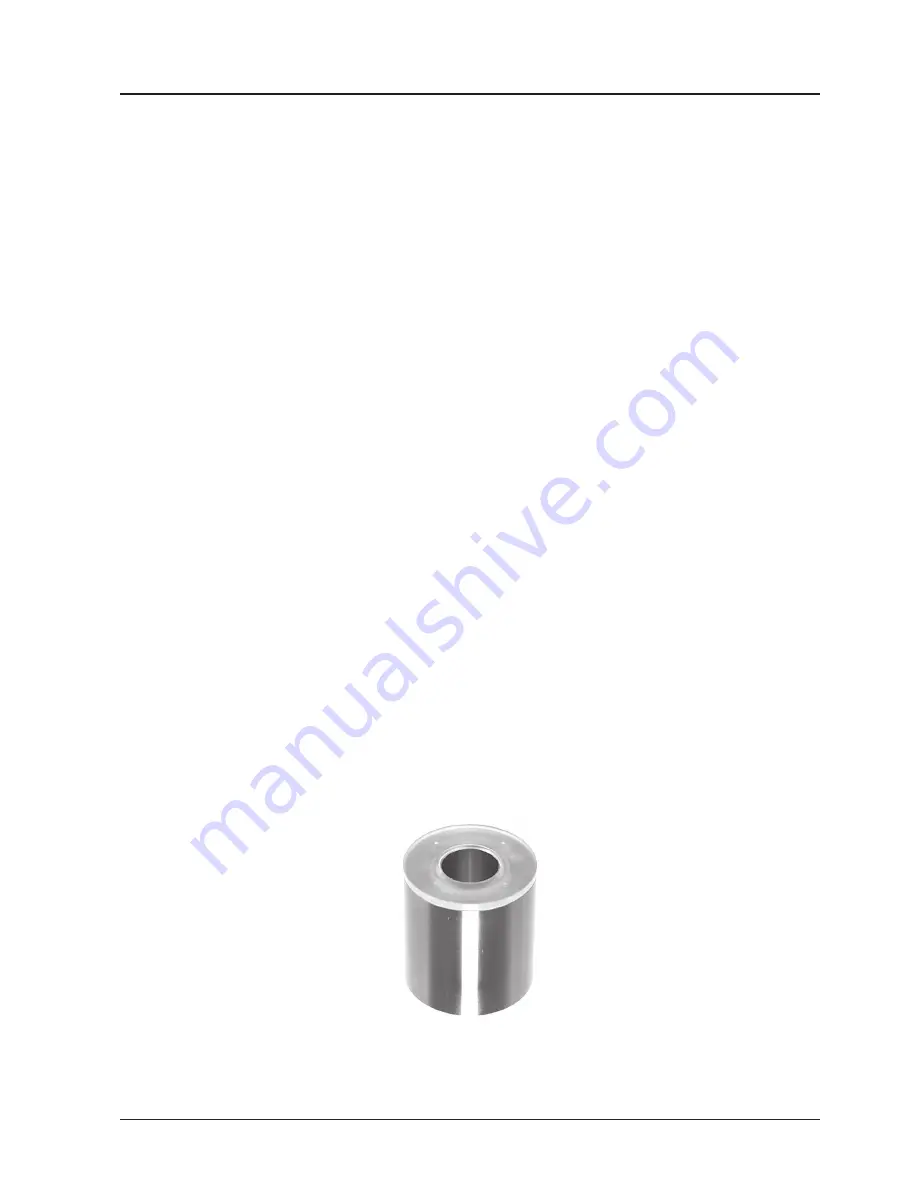
Outdoor Microphone System - Page 17
G.R.A.S. Sound & Vibration
5. Maintenance
5.1 Windscreen
The windscreen should be cleaned as and when necessary depending on the severity of local
conditions. Recommended exchange frequency is one year.
First remove the foam inner sleeve and thereafter unscrew the windscreen assembly and lift it
over the top of the microphone assembly. Pull the foam windscreen out of its holder and wash
it in clean water. Squeeze it, place it back in the holder then remount it over the microphone
assembly.
5.2
Dehumidifiers
There are two dehumidifiers in the form of silica-gel containers in the Outdoor Microphone
System. The one at the top can be viewed through the inspection window after removing the
screw (see Fig. 2.4). The one at the bottom is referred to in section 3, step 5 and is shown in
Fig. 5.1. Both contain silica-gel crystals. In the dry state the colour of these crystals are:
Top dehumidifier: blue *
(changing to pink while absorbing moisture)
Bottom dehumidifier: orange
(changing to white when absorbing moisture)
The top dehumidifier is an indicator of the state of the silica-gel crystals in the bottom dehumidi
-
fier. If the top dehimidifier starts absorbing moisture, then its time to change/dry-off the silica-gel
crystals in the bottom dehumidifier. The effect of this will also dry off the silica-gel crystals in the
top dehumidifier.
There are two ways of drying off the silica-gel crystals in the bottom dehumidifier.
1. Unscrew the Plexiglas lid and put the dehumidifier and crystals in a standard oven (pre
-
heated to 100 °C – 120 °C) for approximately one hour.
2. Pour the silica-gel crystals onto a piece of paper and place in a microwave oven at medium
power for approximately 10 minutes.
After drying off, the colour of the crystals should have changed to dark orange. If not, repeat the
process. Next, pour the crystals back into the dehumidifier and refit the lid.
A new dehumidifier (GU0037) can be ordered, as well as 15 grams of replacement silica-gel
crystals (MI0013).
It is recommended that the colour of the crystals is checked at least once a year in dry climates
and twice a year in humid climates; more often in extremely humid areas or when large tem
-
perature fluctuations occur.
* For environmental considerations, to be phased out and orange crystals used instead
Fig. 5.1 Silica-gel container (GU0037) used at the bottom
of the Outdoor Microphone System

